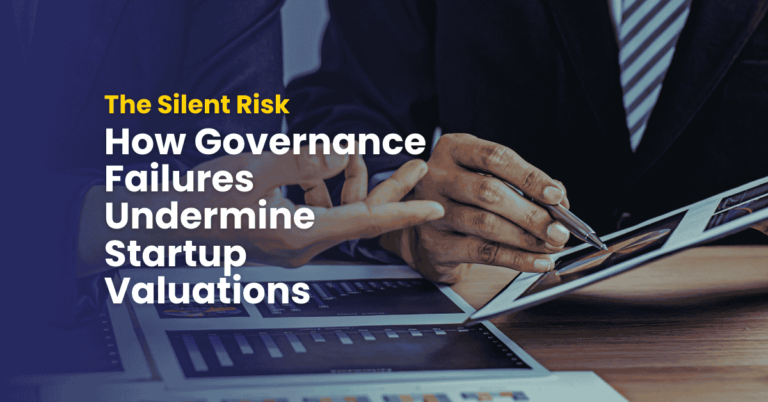In the words of Tariq Ramadan, “The world is a complex place, and the influence of the media in its representation and its power of communication and interpretation is a remarkable amplifier of emotions, and of illusions”. The power of social media and its impact on people cannot be overstated in this day and age where even toddlers are exposed to social media platforms with facile access to smartphone devices. The accelerated growth of social media has paved way for the advent of “influencing”. A social media influencer is an individual who has built a significant following on social media platforms and has the ability to affect the opinions, behaviours, and purchasing decisions of their audience. Influencers often specialize in specific niches such as fashion, beauty, travel, fitness, or technology. They leverage their online presence to create content, endorse products or services, and engage with their followers. This article aims to examine the impact of good and bad social media influencers in promotion of businesses and the legal implications for social media influencers.
Understanding the Impact of Influencers on Consumer Behaviour
Influencers have a tremendous impact on consumer behaviour. Their recommendations and endorsements can sway purchasing decisions, making them an integral part of modern marketing strategies. Good influencers understand their responsibility and prioritize building trust with their audience. They offer valuable content, share genuine experiences, and promote products and services they truly believe in. Their followers trust their recommendations, knowing that they are based on honest opinions and personal experiences.
On the other hand, bad influencers prioritize personal gain over their audience’s interest. They often promote products without genuine endorsement, leading to a breach of trust between themselves and their followers. These influencers may engage in deceptive practices, such as buying followers or using bots to inflate engagement metrics. The fame and follower-centric approach of bad influencers results in uploading of content that does not add any value to the target audience. Their actions not only harm their personal brand but also tarnish the reputation of the brands they collaborate with. Therefore, it is of paramount importance to scout for influencers who hold high standards of integrity in the engagement of audience.
Benefits of Collaborating with Good Influencers
Collaborating with good influencers can bring numerous benefits to brands. Firstly, good influencers build a loyal and engaged audience who genuinely trust their recommendations. By partnering with these influencers, brands can tap into their influence and leverage their credibility to promote their products or services. Some of the key benefits of working with effective social media influencers are as follows:
- Increased Reach and Visibility: Good social media influencers have a substantial and engaged following. Partnering with such influencers can help brands gain more visibility with their target audience. Influencers generally promote brands by taking videos of using the products or availing the services, uploading pictures, endorsing the brand by speaking about it etc.
- Authenticity and Trust: Effectiveinfluencers build a connection with their followers based on trust and can impact the opinion, behaviour, and preferences. When they promote a product or service, it often comes across as a personal recommendation, making the message more authentic and trustworthy.
From the perspective of the audience, good influencers with high standards of integrity create a sense of trust among the audience with respect to the authenticity of the products or services endorsed by them, whereas bad influencers who are not responsible towards the audience can mislead them with their harebrained content. Hence, it is equally crucial for consumers of social media content to exercise mindfulness in selecting the content they choose to interact with.
- Easier Access to Target Audience: Influencers typically have a niche or specific demographic they cater to. This enables brands to reach a highly targeted audience that is already interested in the influencer’s content, aligning with the brand or product. Effective influencers who have genuine following can indubitably influence their target audience with quality content to purchase a product or avail a service thereby also leading to a chance of the brand to go “viral” based on the response received from the target audience.
- Quick and Cost-Effective Marketing: Compared to traditional advertising, influencer marketing can be more cost-effective. It provides a quicker way to get any message across, especially if the brands are looking to create a buzz or promote a specific campaign.
Identifying Bad Influencers and their Negative Impact
While good influencers bring numerous benefits to brands and their audience, bad influencers can have a negative impact on both brands and society as a whole. Bad influencers may promote products without genuine endorsement, leading to disillusionment among their followers. This can result in a decline in trust and credibility, not only for the influencer but also for the brands they collaborate with.
In today’s day and age, negative publicity and bad social media influencing has a far-reaching impact on the society where people are influenced to engage in unacceptable behaviours. Some instances include: i) an individual openly flouting rules on social media and gaining 2 lakh subscribers, ii) a youtuber who attracted millions of followers by performing dangerous bike stunts and over speeding, iii) an actress who gained the attention of media by unnecessary thrashing celebrities by hurling false accusations.
In the light of bad social media influencing gaining popularity, it is essential to know that engaging with ineffective or unethical social media influencers can have many disadvantages and negative impacts for businesses and audience such as the following:
- Inauthenticity: If influencers are perceived as promoting products or services solely for financial gain without genuine interest, their endorsements may come across as inauthentic, leading to distrust among their followers. For instance, a very well-known influencer mom once promoted maida noodles as a healthy breakfast alternative for kids with a video showcasing her own kid enjoying the noodles. This sends across a bad and misleading message to the followers leading to lack of trust among those who once believed the influencer and based their choices on the recommendations of the influencer. Furthermore, the emergence of social media influencers has also led to them providing unsolicited, misleading and half-baked information with respect to areas that require professional skill and knowledge. Examples of the same include influencers being vocal about mental health, nutrition, fitness etc. without having access to proper information or professional expertise.
- Lack of targeted reach and mismatched values: Choosing influencers without considering their target audience can result in a mismatch, leading to promotions reaching an audience that is not interested in or relevant to your products or services.Further, it is important for businesses to associate themselves with influencers whose values align with that of the business. Mismatched values can result in disconnection with the target audience leading to promotions reaching an audience that is not interested in or relevant to your products or services. It is also important for audience to associate themselves with influencers whose values align with them in order to prevent wrongful influence.
- Poor content quality: Some influencers may have a large following but lack the skills to create high-quality content. Poorly executed content can fail to engage the audience effectively. Rather than focussing on creating good quality content, some influencers may just focus on creating content to attract a large audience without developing meaningful relationships with them.
- Unethical practices: Additionally, bad influencers may engage in unethical practices to boost their numbers. This can include buying followers, using engagement bots, or participating in follow-for-follow schemes. These practices not only undermine the integrity of the influencer but also distort the metrics and make it difficult for brands to measure the true impact of their collaborations.
Legal Implications on Social Media Influencers:
The Ministry of Consumer Affairs, Food, and Public Distribution (“Ministry”), through its Department of Consumer Affairs, has issued a set of guidelines called the ‘Endorsements Know-hows!’ (“Endorsement Guidelines”) for social media celebrities, influencers, and virtual influencers (collectively to be called as “Influencers”) on January 20, 2023.
The Endorsement Guidelines require influencers to maintain transparency in their endorsements of products or services, prohibiting any form of deception directed at their audience. Influencers are expected to adhere to the Consumer Protection Act, 2019 and any related regulations or guidelines. The guidelines specifically mandate social media influencers to disclose promotional content in alignment with the Consumer Protection Act, 2019.
According to the Endorsement Guidelines, endorsements should be communicated in a clear and unequivocal manner, employing precise terms such as ‘advertisement,’ ‘sponsored,’ ‘collaboration,’ or ‘paid promotion.’ These indications should be distinct from hashtags or links. Prior to endorsing any product or service, Influencers are required to have firsthand experience with or knowledge of the offering or have undertaken thorough research.
The Code For Self-Regulation Of Advertising Content In India
The Advertising Standards Council of India (ASCI), a self-regulatory organization, has implemented the Code for Self-Regulation, referred to as ‘the Code,’ to promote fair advertising practices in the consumers’ best interest. This Code comprises a set of rules and regulations designed to uphold the authenticity of advertising content.
According to the Code, an ‘influencer’ is someone who has access to an audience and the power to affect their audiences’ purchasing decisions or opinions about a product, service, brand or experience, because of the influencer’s authority, knowledge, position, or relationship with their audience. The following are the disclosure requisites imposed by the Code for social media influencers:
- All advertisements published by social media influencers or their representatives, on such influencers ’accounts must carry a disclosure label that clearly identifies it as an advertisement.
- The disclosure must be upfront, prominent and separated from hashtags so that it is not missed by an average consumer.
- If the advertisement is only a picture or video post without accompanying text (such as Instagram stories or Snapchat), the discloser label needs to be superimposed over the picture/video and it should be ensured that the average consumer is able to view it clearly.
- The disclosure must be made in a manner that is well understood by an average consumer.
Apart from disclosures, the Code also requires influencers to undertake due diligence to ensure that to review and satisfy themselves that the advertiser is in a position to substantiate the claims made in the advertisement.
Summing up, the dichotomy between good and bad social media influencers has far-reaching consequences, not only for the individuals involved but also for the broader online community. While ethical influencers contribute positively to their audience, fostering trust and promoting authenticity, other hand, bad influencers tend to prioritize personal gain over their audience’s interest, often promoting products without genuine endorsement and engaging in questionable practices to boost their numbers. The legal implications for social media influencers are becoming increasingly significant, with regulations evolving to address issues such as transparency, advertising standards, and the potential impact on consumer well-being. Lastly, it is of paramount importance that consumers of social media content encourage and engage with influencers who have a positive impact in their lives in order to build a more authentic and trustworthy digital landscape.




